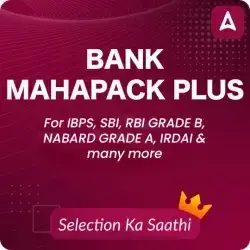With the increased competition in the field of banking examinations, it has now become very important to cover up all the sections efficiently. One subject that can help you bagging graceful marks in the minimum time in these examinations is Banking Awareness. Banking Awareness Quiz not only helps you deal with the General Awareness Section of Banking Exams but also, the Personal Interview round of Banking Recruitment.
Q1. Reserve Bank of India was established on 1st April, ______ in accordance with the provisions of Reserve Bank of India act _________.
(a) 1935, 1934
(b) 1934, 1935
(c) 1935, 1936
(d) 1937, 1938
(e) 1921, 1956
S1. Ans.(a)
Sol. The Reserve Bank of India was established on April 1, 1935 in accordance with the provisions of the Reserve Bank of India Act, 1934. The Central Office of the Reserve Bank was initially established in Calcutta but was permanently moved to Mumbai in 1937. The Central Office is where the Governor sits and where policies are formulated.
Q2. Which among the following is/are the different type(s) of category under priority sector?
(a) Agriculture
(b) Micro, Small and Medium Enterprises
(c) Export Credit
(d) All of the Above
(e) None of the given options is true
S2. Ans.(d)
Sol. Categories of priority sector for all scheduled commercial banks will be as under:-
i. Agriculture
ii. Micro, Small and Medium Enterprises
iii. Export Credit
iv. Retail Trade
v. Education etc.
Q3. A _____________ account in a bank allows you to deposit and withdraw money any time you want and earn interest on it.
(a) Current account
(b) fixed deposit
(c) recurring deposit
(d) savings bank
(e) reinvestment deposit
S3. Ans.(d)
Sol. A savings account in a bank allows you to deposit and withdraw money any time you want. The money is not only kept safe in a bank, you also earn interest on it. To open a savings account, all you need to do is approach your local bank with proof of identity (such as your PAN card, ration card, passport, voter ID card, etc.) and proof of residence (such as your electricity or telephone bill, your ration card, etc.) and two photographs.
Q4. The Priority Sector Lending Certificates (PSLCs) can be traded using the RBI‘s_______
(a) e-Kuber platform
(b) NEFT
(c) RTGS
(d) CBS
(e) IMPS
S4. Ans.(a)
Sol. To facilitate trading in PSLCs, a trading platform is being provided through the CBS portal (e-Kuber). The detailed user manual/ instructions for trading on the platform are available through the portal.
Q5. When it comes to the following term namely IPO, what do you mean by “P” in IPO?
(a) Provisions
(b) Public
(c) Private
(d) Provident
(e) Pension
S5. Ans.(b)
Sol. An Initial Public Offering (IPO) refers to the process of offering shares of a private corporation to the public in a new stock issuance. Public share issuance allows a company to raise capital from public investors.
Q6. Loan given by the banks to farmers/small shop owners etc. is known as-?
(a) Corporate loan
(b) Education loan
(c) Priority Loan
(d) Commercial Loan
(e) None of the given options is true
S6. Ans.(c)
Sol. Loan given by the banks to farmers/small shop owners etc. is known as Priority Loan.
Q7. Sensitive Index of Bombay Stock Exchange is called-?
(a) Forex
(b) MAX
(c) LIBOR
(d) Sensex
(e) None of the given options is true
S7. Ans.(d)
Sol. The BSE SENSEX (also known as the S&P Bombay Stock Exchange Sensitive Index or simply the SENSEX) is a free-float market-weighted stock market index of 30 well-established and financially sound companies listed on Bombay Stock Exchange.
Q8. A Pledge means-?
(a) advanced against goods
(b) hypothecation of goods
(c) bailment of goods as security for payment of a debt or performance of a promise
(d) Open limits
(e) None of the given options is true
S8. Ans.(c)
Sol. Cash deposit or placing of owned property by a debtor (the pledger) to a creditor (the pledgee) as a security for a loan or obligation. The pledgee has an implied right to confiscate and/or sell the pledged property to satisfy his or her claim in case of a default.
Q9. With effect from 1st July 2010, interest rates of Banks are linked to which of the following?
(a) Base Rate
(b) Benchmark Prime Lending Rate
(c) Bank Rate
(d) Repo Rate
(e) None of the given options is true
S9. Ans.(a)
Sol. Banks switching over to a ‘base rate’ system of loan pricing from 1st July 2010.
Q10. Balance Sheet of a firm indicates which of the following?
(a) Profit or Loss over a period
(b) Financial position of the unit over a period
(c) Financial position of the unit as on a particular date
(d) Position of assets and liabilities over a period of time
(e) None of the given options is true
S10. Ans.(c)
Sol. Balance sheet (B/S)is one of the four primary financial statements that public companies must publish every quarter and year. The B/S summarizes the firm’s financial position at one point in time. Some firms and most government organizations publish their Balance sheets under the other proper name for the B/S, Statement of Financial Position. The other three mandatory statements are the Income statement, the Statement of retained earnings, and the Statement of changes in financial position.
Q11. National Housing Bank (NHB) was set up under-?
(a) National Housing Bank Act, 1987
(b) National Housing Bank Act, 1977
(c) National Housing Bank Act, 1967
(d) National Housing Bank Act, 1957
(e) None of the given options is true
S11. Ans.(a)
Sol. National Housing Bank (NHB), a Government of India owned entity, was set up on 9 July 1988 under the National Housing Bank Act, 1987.
Q12. What is difference between banks & HFCs?
(a) HFCs cannot accept demand deposits
(b) It cannot issue cheques drawn on itself
(c) deposit insurance facility of Deposit Insurance and Credit Guarantee Corporation is not available to depositors of HFCs
(d) All of the Above
(e) None of the given options is true
S12. Ans.(d)
Sol. Housing Finance Companies (HFCs) are entities set up under a license by the National Housing Board (NHB), to provide home loans as per the NHB’s guidelines. On the other hand, banks are regulated by the Reserve Bank of India (RBI). New home buyers are often in a dilemma, over whether they should apply for a loan from an HFC or a bank. The recent liquidity crisis being faced by non-banking finance companies (NBFCs), has also raised serious doubts about their working style and people are concerned about its impact on their home loans.
Q13. Matryoshka bond is issued by?
(a) USA
(b) Japan
(c) Russia
(d) Canada
(e) South Korea
S13. Ans.(c)
Sol. The term matrioshka bond refers to an indenture issued in the Russian Federation, in Russian ruble, by a foreign bank or corporation.
Q14. An Indian rupee denominated bond issued outside India is called-?
(a) Yankee bond
(b) Bulldog bond
(c) Uridashi bond
(d) Samurai bond
(e) Masala bond
S14. Ans.(e)
Sol. Masala bonds are bonds issued outside India but denominated in Indian Rupees, rather than the local currency.
Q15. The safest form of Crossed Cheque is-
(a) Double Crossing
(b) General Crossing
(c) Special Crossing
(d) Account payee crossing
(e) None of the given options is true
S15. Ans.(d)
Sol. Crossing a Cheque is the safest way to transfer money. A crossed cheque can ensure that the money is transferred only in a Bank account and cash is not withdrawn.
Check the Video of Banking Awareness-
You may also like to Read:
More questions of banking awareness for bank exams
More Current affairs questions

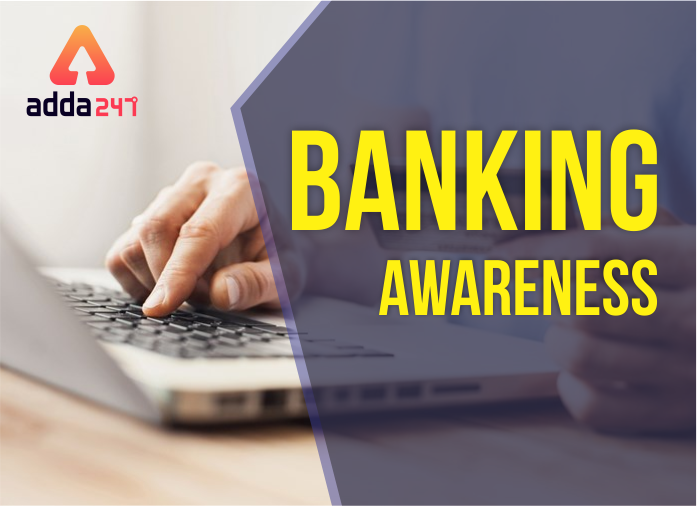



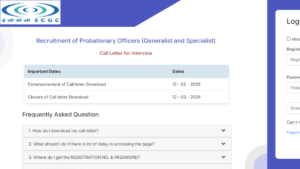 ECGC PO Interview Call Letter 2026 Out, ...
ECGC PO Interview Call Letter 2026 Out, ...
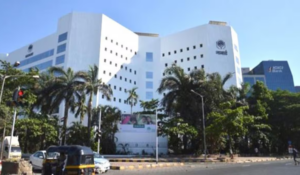 NABARD Grade A 2026 Notification, Exam D...
NABARD Grade A 2026 Notification, Exam D...
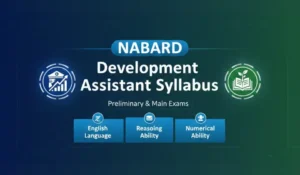 NABARD Development Assistant Syllabus 20...
NABARD Development Assistant Syllabus 20...

